First Conference of the Silk Road International Library Alliance Held in Hangzhou, Zhejiang
On September 2, the First Conference of the Silk Road International Library Alliance, supported by the Bureau of International Exchange and Cooperation, Ministry of Culture and Tourism of the People's Republic of China, co-sponsored by the National Library of China and Zhejiang Provincial Department of Culture and Tourism, and organized by Zhejiang Library, was held by video conference in Hangzhou, Zhejiang Province. Feng Litao, Deputy Director of the Bureau of International Exchange and Cooperation, Ministry of Culture and Tourism of the People's Republic of China, Chen Ying, Deputy Director of the National Library of China, Xu Peng, Deputy Director of Zhejiang Provincial Department of Culture and Tourism, Chu Shuqing, Director of Zhejiang Library, and more than 30 directors of national libraries and representatives of famous cultural institutions from 27 countries that participate in the Belt and Road Initiative in Asia, Europe, Africa, and Oceania, along with more than 30 directors of national and provincial libraries, experts and scholars from China, attended the conference by video conferencing.
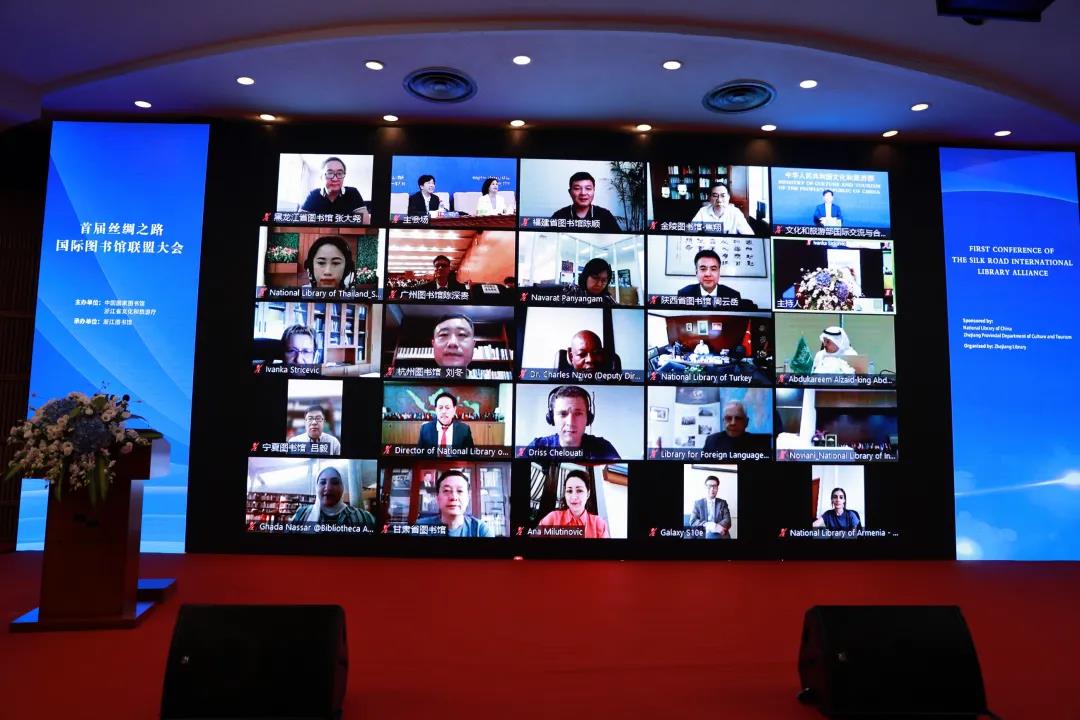
In his opening speech, Feng Litao said that the Belt and Road Initiative, which upholds the spirit of the ancient Silk Road, is being transformed from a Chinese initiative into a global action and has become a great practice for building a community of common destiny for mankind. The Silk Road International Library Alliance advocated by China is a platform that upholds the concept of harmony in diversity, openness and inclusiveness. It is an important achievement of the Belt and Road Initiative in the cultural field, and also a significant initiative to build long-term cooperation and regular exchange mechanisms among libraries in various countries. China expects that through this conference, member institutions will further build consensus on cooperation and form synergy for development, and steadily realize the vision of business improvement and talent training under the framework of the Alliance.
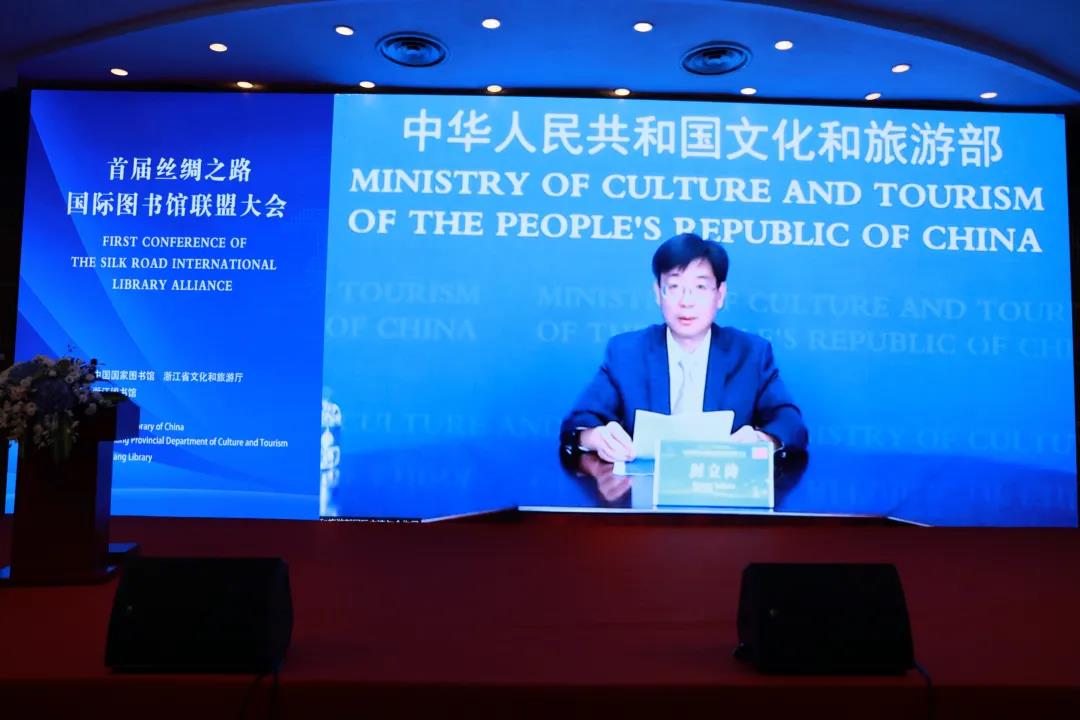
In his opening speech, Xu Peng said that since ancient times, Hangzhou, Zhejiang Province, has been an important node city along the land and maritime Silk Road, where various splendid cultures have collided and mingled due to frequent trade exchanges. Today, experts and scholars from countries that participate in the Belt and Road are once again focusing on Hangzhou in the "cloud", sharing their knowledge and looking forward to the future, advising on the transformation and change of libraries and contributing their wisdom to the development of human civilization together. It is expected that this conference will promote the building of a community of common destiny for libraries along the Belt and Road, and that the Silk Road International Library Alliance will continue to grow and develop.
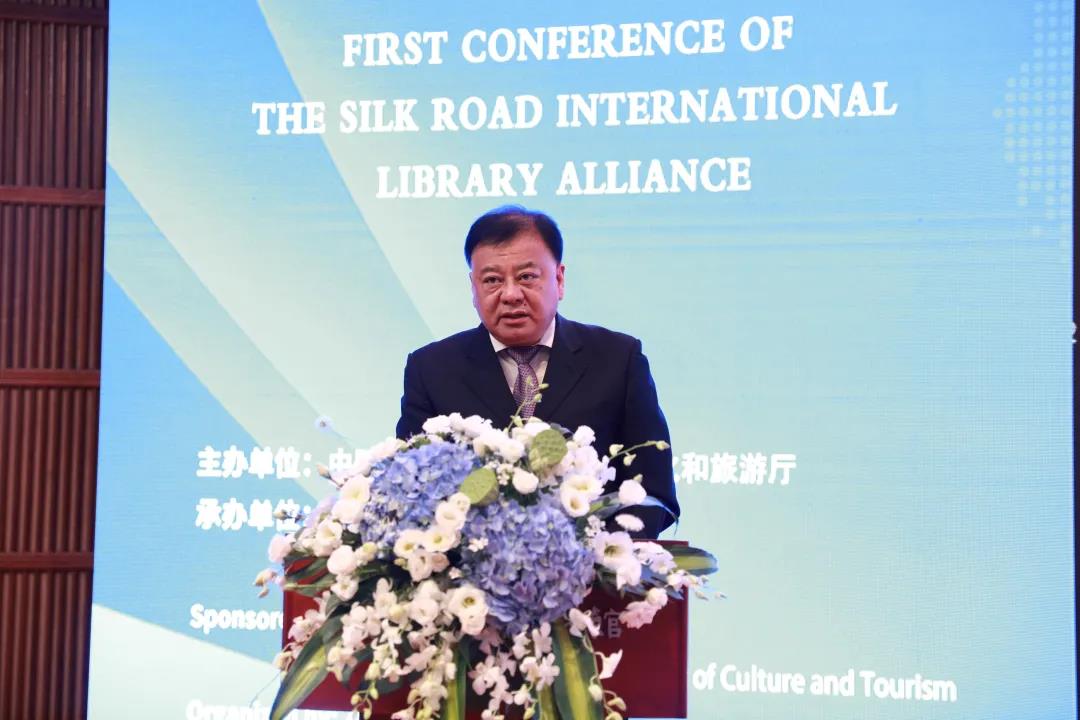
On behalf of the lead unit of the Alliance, Chen Ying delivered a keynote speech at the conference. Firstly, she reviewed the background and main achievements of the Silk Road International Library Alliance and pointed out that the strong resilience and vigor of international cooperation under the Belt and Road Initiative in the global fight against the epidemic fully proved that libraries should and could play a more important role in promoting cultural exchanges and cooperation and consolidating mutual learning and appreciation of civilizations under the Belt and Road Initiative. She also advocated that libraries in the countries and regions that participate in the Belt and Road Initiative should further strengthen exchanges and cooperation. Finally, three recommendations were put forward to promote the sustainable development of the Alliance: first, to optimize the management and operation mechanism and strengthen the consensus on cooperation among member institutions; second, to strengthen the construction of brand projects and promote cooperation in key areas to achieve stability and success; and third, to deepen digital cooperation and promote the intelligent and innovative transformation of libraries.
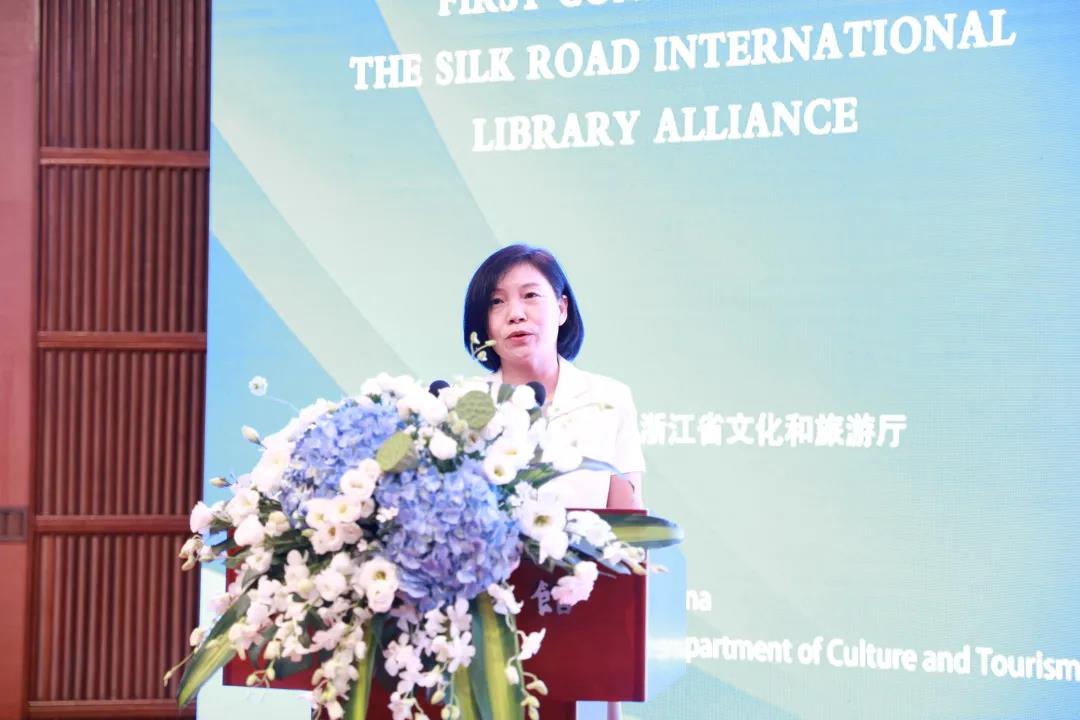
The Third Forum on the Silk Road International Library Alliance was held at the same time, where representatives from three domestic members of the Alliance, namely Zhejiang Library, Fujian Provincial Library, and Shaanxi Library, and five foreign members of the Alliance, namely National Library of Indonesia, Qatar National Library, M. I. Rudomino All Russia State Library for Foreign Literature, King Abdulaziz Public Library, Kingdom of Saudi Arabia and Singapore National Library Board, delivered presentations on the theme of "Creating a New Future for the Community of Common Destiny for Libraries of the Belt and Road Countries", and shared case studies and exchanged experience on the Belt and Road Initiative related work practices that their libraries have participated in and planned to implement, making constructive suggestions on the future development of the Alliance.
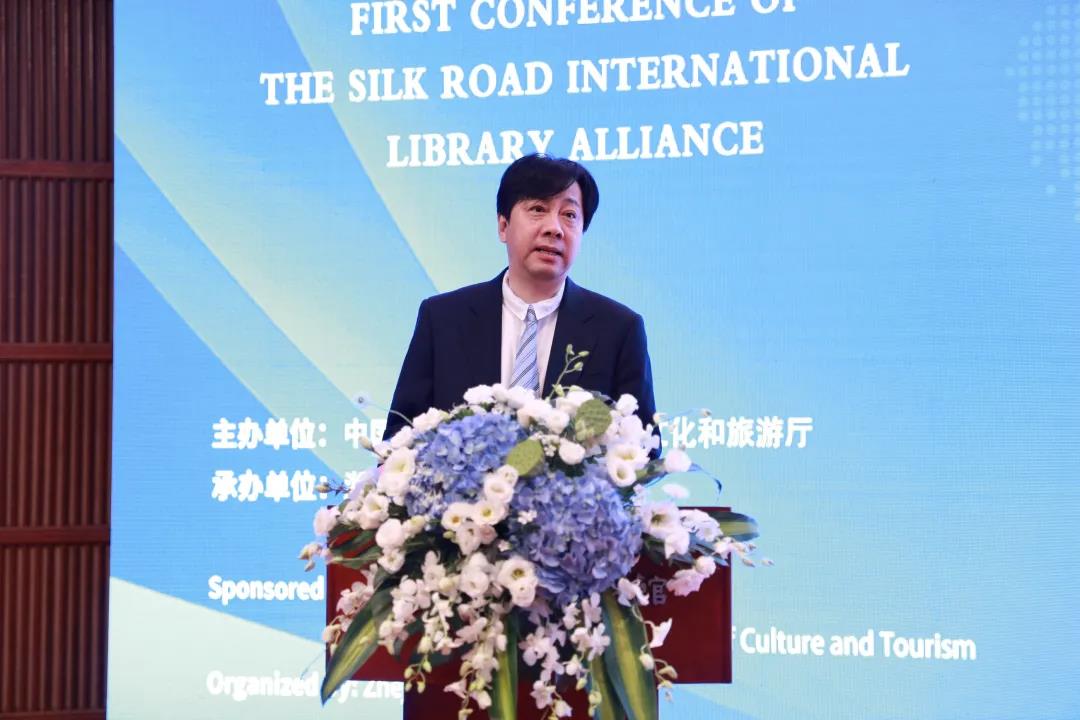

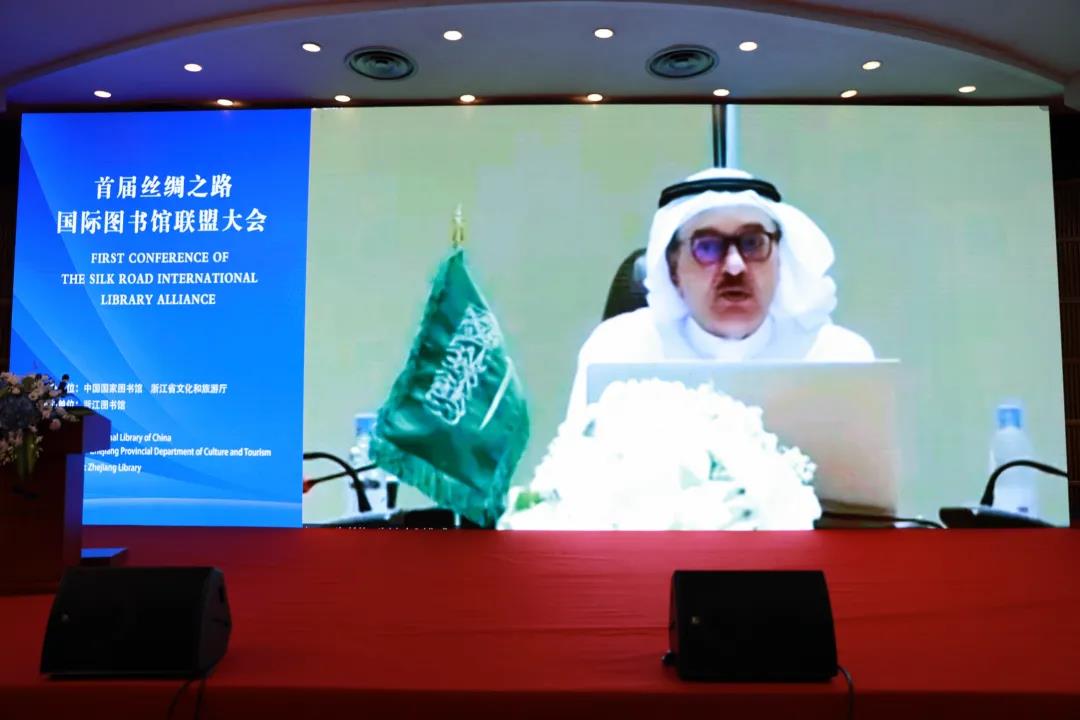
At present, the Silk Road International Library Alliance has 38 members, mainly comprising representative libraries from countries that participate in the Belt and Road Initiative. The number of members has grown since its inception and will steadily develop in the next stage to include more representative libraries from home and abroad to join the Alliance.
During the Conference, the members of the Alliance discussed and adopted the Provisions of the SRILA, which elaborated and defined in detail the purpose, functions, organization, membership, and funding of the Alliance, etc. The successful unfolding of this agenda is of great significance to the standardized operation and sustainable development of the Alliance.
The National Library of China, as the lead unit of the Alliance, announced on-site two key long-term projects that the Alliance will soon launch, i.e., the "Silk Road Digital Library" and "Silk Road International Library Alliance Librarian Series Training Course" projects, which received positive responses from the member institutions attended. It is the unanimous hope that through the effective implementation of the project mechanism, the Alliance will deepen the concept of resource co-construction and sharing, carry out cooperation in the protection and digitization of thematic documents, and strengthen exchanges in library management and personnel training.
The convening of the First Conference of the Silk Road International Library Alliance and the entry into force of the Provisions of the SRILA marked a substantial step forward in the construction of the Alliance. The National Library of China, as the chairing unit of the first Steering Committee of the Alliance and the seat of the Steering Committee's office, will make efforts to establish exchange mechanisms, build cooperation platforms, plan brand projects, and do a good job in serving and safeguarding the future high-quality development of the Alliance.







